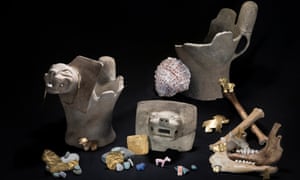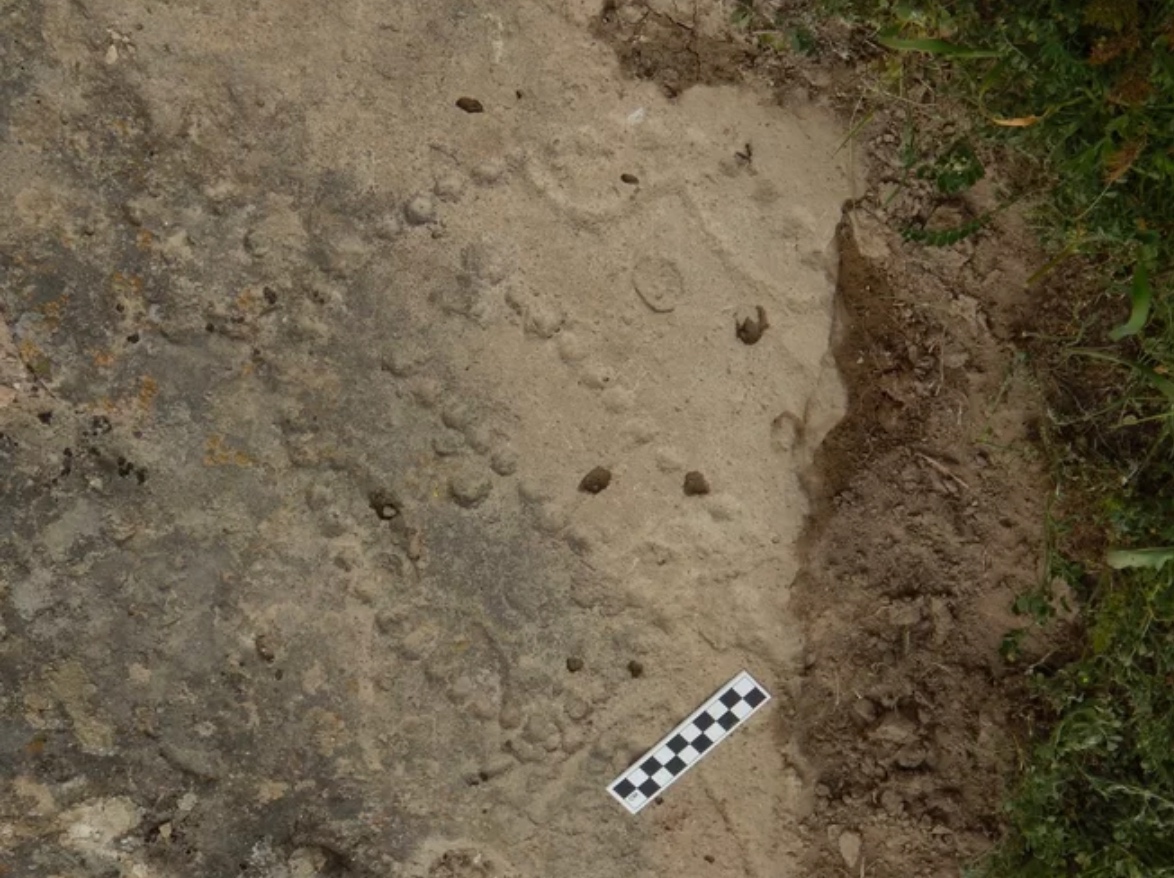via Interesting Literature
This month’s classic film review is an analysis of the 1973 film Westworld, a notable first in movie history

Image: via Lou on Flickr
Michael Crichton published his most influential early novel, The Andromeda Strain, in 1969 while he was still in his twenties. Pleasingly, when the novel was adapted into a film two years later, Crichton was given a tour of the set by a young Steven Spielberg, who was on his first day at work as a film director. (Spielberg, of course, would later direct the film adaptation of Crichton’s Jurassic Park.)
Continue reading
==============================
The same 32 symbols show up in prehistoric European cave art.
via the Big Think blog by Frank Jacobs

- Many of these symbols are found in caves in Africa, Asia, Australia and America as well.
- At least 40,000 years old, the set of symbols may have been a universal communications tool.
- Among these symbols is the iconic hashtag.
==============================
via the Guardian by Ian Sample Science editor

Lake Titicaca’s Tiwanaku-period offerings from the Khoa reef. Photograph: Teddy Seguin
An ancient ceremonial site described as exceptional has been discovered in the Andes by marine archaeologists, who recovered ritual offerings and the remains of slaughtered animals from a reef in the middle of Lake Titicaca.
The remarkable haul points to a history of highly charged ceremonies in which the elite of the region’s Tiwanaku state boated out to the reef and sacrificed young llamas, seemingly decorated for death, and made offerings of gold and exquisite stone miniatures to a ray-faced deity, as incense billowed from pottery pumas.
Continue reading
==============================
The madness of King Henry VI
In the hot summer of 1453, King Henry VI went “mad”. The result was anarchy and bloodshed.
via the New statesman by Nigel Jones

The peace-loving and scholarly Henry VI took the throne during a brutal age
In the hot summer of 1453, King Henry VI went “mad”. Staying at his hunting lodge, Clarendon Palace, outside Salisbury, he slumped like a sack into a catatonic stupor, his eyes downcast, apparently unable or unwilling to speak or move. And he stayed that way for 17 months .
The mental illness of monarchs has been a fruitful subject for historians – witness the debate on the cause of the insanity of George III. In Henry’s case, however, his affliction was not merely inconvenient for England’s ruling political caste: it led directly to a 30-year civil war and the violent deaths of thousands.
Continue reading this very favourable review. Makes me want to see if my local public library has a copy.Shadow King: The Life and Death of Henry VI
Lauren Johnson
Head of Zeus, 776pp, £30
via Boing Boing by Carla Sinclair
How did humans' "oldest rivals," the grey wolves (canis lupus), become our slobbering, shoe-chewing, bone-fetching, protective best friends? TED-Ed brings us this brief history that shows how wolves evolved into French Bulldogs, German Shepherds, Shiba Inus, Toy Poodles, and the rest of the canine lot.
==============================
via Interesting Literature by Dr Oliver Tearle
Who was Lucy Locket, and what is the deal with her pocket? How does one lose a pocket? We’re here to answer these and other important questions in today’s blog post, the latest in our series of posts analysing classic nursery rhymes.
Continue reading
==============================
The Man Who Wasn’t Gershwin
Oscar Levant…classical musician?
via Arts & Letters Daily: Terry Teachout in Commentary Magazine

Oscar Levant vanished into the memory hole of popular culture within a few years of his death in 1972. If he is known at all today, it is as the sardonic piano-playing sidekick he portrayed in a dozen movies of the ’40s and ’50s, most famously with Gene Kelly in An American in Paris (1951) and Fred Astaire in The Band Wagon (1953). Because these screen appearances are now his sole claim on posterity, it came as a surprise when Sony Classical released A Rhapsody in Blue: The Extraordinary Life of Oscar Levant last fall. This eight-CD boxed set contains the hundred-odd recordings that he made as a pianist between 1941 and 1958, accompanied by a 124-page book whose centerpiece is a biographical essay by the cabaret singer Michael Feinstein.
Continue reading A fascinating story that will interest music fans and anyone coping with bipolar disorder.
==============================
via the Guardian by Daryl Mersom

A piece of a rediscovered Almaty sgraffito by the Kazakhstan graphic artist Eugeny Sidorkin (1930-82). Photograph: Daryl Mersom
When Jama Nurkalieva and a small group of colleagues conducted a site survey of a disused Soviet-era panoramic cinema in Almaty, the former capital of Kazakhstan, they had no idea what lay behind the internal plasterboard wall that faces out towards the street – until someone spotted a narrow gap.
As the caretaker shined a light into the darkness behind, the group caught a glimpse of a man’s head. Out came the toolbox and the rest of the artwork was slowly revealed: a Soviet-era sgraffito by the graphic artist Eugeny Sidorkin that had been lost and forgotten for decades.
Continue reading
==============================
via the Big Think blog by Matt Davis
From animated umbrellas to polite-but-violent turtle-people, Japan's folklore contains some

Kazusa-ya Iwazô, 1842
A bake-danuki uses it's, um, special skill set to fashion a boat.
- Compared to Japan's menagerie of creatures, Western folklore can feel a little drab.
- The collection of yōkai—supernatural beasts or spirits—has a staggering amount of variety.
- Although there are many more creative folkloric creatures, here are nine that caught our attention.
==============================
via Boing Boing by David Pescovitz

An archaeologist is studying a 4,000-year-old game board carved into the floor of a rock shelter in Azerbaijan. According to American Museum of Natural History researcher Walter Crist, the board was used to play an ancient game called "58 Holes" or "Hounds and Jackals".
Continue reading
No comments:
Post a Comment